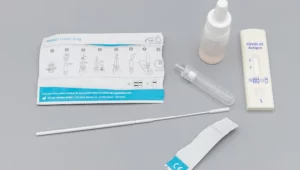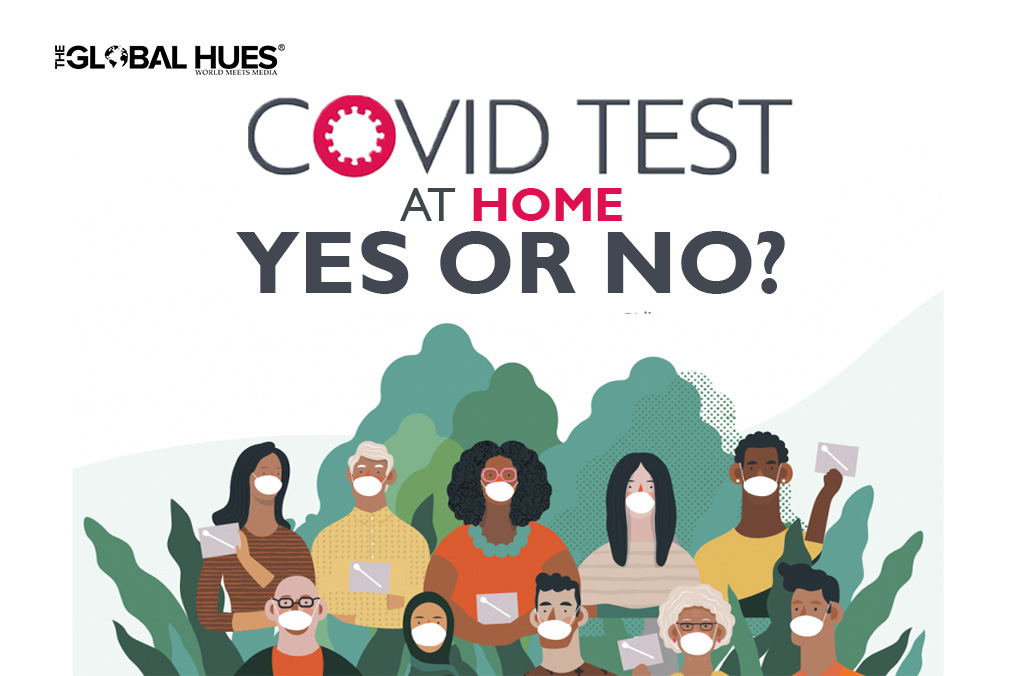Our life hasn’t been the same since the arrival of the pandemic. We are caught up in so many precautions and rules to follow to avoid the disease. It is quite normal that you catch a mild sickness or you could even get infected from Covid-19. But it is not an easy task to get yourself tested for the virus as hospitals and pathology are the riskiest places to avoid contamination.
But how you would get yourself tested by not stepping out? This problem has an alternative solution: Doing Covid tests at home.
WHAT ARE THESE TESTS?
At-home rapid Covid tests are an easy way to perform Covid tests. They allow you to swab your nose and get the results in minutes. It can be a useful and reassuring way for both the vaccinated and unvaccinated people to navigate the ongoing pandemic.
However, with the availability of vaccines for all people in the country, the question may arise of why anyone would still need a home test for Covid-19. But looking at the current situation, coronavirus isn’t going away anytime soon, and a rise in the number of infected people is being reported daily. Another variant named Omicron is spreading rapidly in various regions of the country. So with the rise of danger, the need is to be prepared and tested.
WHY THESE TESTS?
As compared to the lab-based PCR tests, Rapid antigen tests are more reliable in terms of speed and convenience.
It is a very flexible and efficient way to check a large sum of people for viruses by getting results in merely 15 minutes. On the other hand, PCR tests at labs take about a day or more. It becomes fairly easy and quick to take precautions to prevent transmission.
The availability of rapid tests results in testing of any suspected person, sitting at home or families with young children who aren’t yet eligible for vaccination and are also useful for anyone who remains unvaccinated. It is thus far more convenient than PCR testing.
At the cost of somewhere between Rs 250 and Rs 350, these kits are comparatively cheaper and wiser alternative tests that are conducted at the labs
Moreover, these at-home Rapid Antigen Test (RAT) kits come along with a sense of freedom and flexibility without having to go through all the crowds which are high to be taken care of during the outbreak of a virus.
HOW DO THEY WORK?

At home, tests use strips that contain antibodies to a critical protein present in the virus. You need to swab your nostril with the supplied swab and apply the sample to the test strip. Lateral flow technology moves the sample fluid over the antibodies on the test strip, quite similar to a paper towel soaking up water.
If the Covid-19 antigens are present in the sample, they bind with the antibodies, giving a positive result. The results are negative if antigens are not present.
WHICH TEST TO CHOOSE?
The purpose defines what type of Covid test you choose. Most tests that provide rapid results are antigen tests, but they may not be sufficient before attending an indoor event, and if you’re traveling.
Most home test kits contain nasal swabs, while some test a saliva sample instead. These tests can be slightly less sensitive than nasal tests that use a long swab to gather a mucous sample, but both are considered viable at-home testing options.
These tests are mostly accurate but typically less sensitive than molecular tests. They detect the virus best if you have a high viral load, which occurs when the person is symptomatic or has been recently exposed and your infection has just begun.
Taking a home Covid test takes just a few minutes, and everything a person needs is in the box. Be sure to follow all the instructions that come with the test. Instructions include how to swab and the appropriate amount of time to wait before reading the result. Most home tests come in packs of two and produce results in around 15 minutes.
Some home tests also have smartphone apps that record the results, which have mechanisms for reporting results to public health departments. This reporting feature is a major requirement for all current and future home Covid-19 tests, keeping in mind the importance of public health interventions to overcome this pandemic.
Moreover, test users must be aware of state laws requiring providers to report certain test results, such as positive SARS-CoV-2 results, to public health authorities.
The efforts by manufacturers and the FDA to bring forward additional Covid-19 tests are exemplary along with the history of limited access to timely test results for patients. The Centers for Disease Control and Prevention (CDC) also contributed regarding test result interpretation.
DISCUSSION OVER THE TEST
Pondering over the advantages of home Covid-19 testing, it includes the ease for individuals to test themselves without going to a healthcare facility and the preservation of personal protective equipment. When a suspected infected individual travels to a test center, there is always a high risk of infection transmission to other patients, visitors, and to the healthcare providers who have to perform the test on the specimen. This also preserves personal protective equipment for use elsewhere.
But on the other hand, there are several important queries and myths regarding the use of home Covid-19 tests. First among these is obtaining a quality specimen and the performance of the test. The whole process to perform tests has been simplified by the manufacturer-provided visual aids, videos, or online guidance to assist in specimen collection and understanding test performance.
The users must perform these tests thoroughly. They must read and follow the given manufacturer’s instructions. However, regardless of the test type, either performed at home or in the laboratory, an inferior quality specimen often translates into inferior test results.
These at-home Covid-19 tests provide highly accurate positive results in the suspected individuals but the negative test results in symptomatic individuals should be questioned because these tests are reportedly less accurate than the highly sensitive molecular tests done in the laboratory.



